4D
adj./Noun; 4th Dimensional, person (idol) who is living in their own world (dimension) with a tendency to act strange or weird.
Acgae Fan
Noun; a fan or fan community of an individual member of JYJ or TVXQ, who spread rumors about the other members in hope of their favorite member’s group disbanding and them then pursuing a solo career.
Aegyo
Noun; Korean word for “the act of acting cute”. Originally considered a feminine trait, but currently referring to behavior of both men and women. There’s a clear distinction between “natural” and “forced/fake” aegyo.
Age Line
Noun; refers to the relationships between idols that share birth years. They might at some point in their career form an official or unofficial group to maintain friendships and might even adopt a name and ask for membership fees.
Want to find out your own age line and who is in it? Find out here.
Ajumma/Ajusshi
Noun; Korean words, “Ajumma” (=auntie) refers to elderly married ladies and “Ajusshi” (=uncle) to elderly married men, also used as “Sir”, if addressing a stranger.
All Kill
Noun; used when an artist or group has a 1# song or album on all the legal music download sites, e.g. Melon, Dosirak or Soribada.
Always Keep The Faith
A slogan adopted by fans of TVXQ from former TVXQ member Yoochun’s personal motto. Expresses the wish that the all original members of TVXQ would reunite as five members.
Andwae
Exclamation, used to express disbelief/horror, commonly translated as “No way!”.
Anti(-Fan)
Noun; used to describe a person who expresses hate towards a group or celebrity and even acts upon it in attemps to demolish someone’s career or damage their health.
Bacon
Bacon is a fan-given nickname for Exo-K’s Beakhyun originating from the phonetic similarity between his name and the English word “bacon”.
Bagel Boy/Girl
Noun; a male or female whose face is “baby/child-like”, but who have an adult “glamorous” body.
Bias
Noun; a kpop fan’s favorite idol/member of a group.
Bias List
Noun; a list that KPop fans have, where they rank their favorite idols. To see an example of a bias list: Click here.
Bias List Ruiner
Noun; an idol who, once a fan discovers their existence, messes up the former ranking of that fan’s bias list and they have to start over with the exhausting task of ranking their favorite idols.
Big 3
refers to the three most important and influential entertainment companies of KPop (YG Entertainment, JYP Entertainment and SM Entertainment).
Black Ocean
Noun; a large group of fans conspiring to simultaneously turn off their light sticks to express their dissatisfaction with the performing KPop group or solo artist.
Cassie
Noun; a TVXQ fan (member of their fan club Cassiopeia). To see a list of all KPop fan clubs click here.
Chunlish
Noun; combination of the words “Yoochun” and “English” referring to TVXQ’s/JYJ’s Yoochun’s misuse of the English language.
Comeback (Stage)
In the KPop industry the meaning of the word “comeback” is slightly different from the way it’s used in the West. It can, but does not exclusively refer to an artist who has been on a long hiatus returning to the music scene. Most of the time it means a KPop group or solo artist, who previously released singles, is back again with a new album/single and promoting them by 1st performing the song on a music TV Show (=doing a “comeback stage”).
Daebak
adj.; literally “big hit/win”,also used to describe someone/something as awesome or extremely successful.
EYK
Acronym for “Eat Your Kimchi” a YouTube channel and video guide about living in Korea and KPop by Simon and Martina Stawski.
E.L.F
Acronym for “Everlasting Friend”, official Super Junior fan club. To see a list of all KPop fan clubs click here.
Fan Service
Noun; an act carried out by idols or actors to please/entertain the audience, even though not actually relevant to their performance. Examples: Display of “Bromance”, shirtless performances or shower scenes in KDramas that add noting whatsoever to the plot, but please and entertain audiences.
Flower Boy
Noun; a male person who is considered feminine, but attractive.
Hallyu
Noun; “Korean Wave”, increasing worldwide interest in Korean traditional and popular culture (KPop & KDramas).
Hanbok
Noun; usually meaning a colorful traditional Korean dress.
Hoobae
Noun; commonly translated as “junior”, not only refers to a younger person, but also to someone who started working (e.g. for a KPop label) later than the person calling them “Hoobae”.
Hwaiting
Korean pronunciation of “fighting!”, popular motivation chant.
Hyung
Noun; Korean honorific used my males to address an older male who is still generally in their age range.
Konglish
Noun; Konglish is the use of English words (or words derived from English words) in a Korean context. The words, having initially been taken from the English language, are either actual English words in Korean context or are made from a combination of Korean and/or English words . Common sentence structure or vocabulary mistakes made by Koreans have also been referred to as Konglish.
Koreaboo
Noun; a non-Korean person who is strongly obsessed with Korean popular culture, (but tends to get Korean words, grammar and facts wrong.)
Magnae/Maknae
Noun; the youngest member of a (KPop) group or a family.
Netizen
Noun; combination of the words “Internet” and “Citizen“. Frequently used to describe the more or less anonymous online (fan-) community.

Noona/Nuna
Noun; lit. “older sister” used only by males addressing an older female who is still generally in their age range. Also refers to a female in a relationship with a younger male.
Oppa
Noun; lit. “older brother” used by females to address an older male who is still generally in their age range. Also used in a romantic sense.
OST
Acronym; stands for Original Soundtrack, usually used for the soundtrack of KDramas.
Pedo-Noona
Noun; combination of the words “pedophile” and “noona”, used by international fans to refer to female fans who are attracted to younger male idols.
Rookie (Group)
Noun; a newcomer group, someone who recently debuted.
Selca
Noun; combination of the words “Self” and “Camera”; Korean version of the word “selfie”. Frequently used to describe pictures taken by idols of themselves (usually in the mirror) and posted online.

Shipping
Noun/Verb; derived from the English word “relationship“; refers to the act of fans, when “putting” two idols “together” as a couple.
Sone
Noun; a fan of SNSD/Girls’ Generation. Also name of their fanclub. To see a list of all KPop fan clubs click here.
Sasaeng (fan)
Noun; an obsessive fan who goes as far as following and stalking their favorite KPop celebrity.
Sub-unit
Noun; smaller group within a large group, made up of members of the existing group, releasing songs separate from the original group to possibly appeal to another group of listeners/experiment with different styles.
Sunbae
Noun; Commonly translated as “senior”, not only refers to an older person, but also to someone who started working (e.g. for a KPop label) earlier (even though that person might be younger).
Trainee
Noun; a person who is training at an entertainment agency in hope to debut as KPop idol.
Unnie
Noun; lit. “older sister”, used by females to refer to older females who are still generally in their age range, can be used in a platonic or romantic sense.
Ulzzang
Noun; combination of the Korean words “Ul gool” (=face) and “zzang” (=best); refers to a person particularly attractive/handsome.
Visual
Noun; person who is considered to be the prettiest/most attractive group member, official title of the “pretty face” of a kpop group
Not happy with our definitions? Or have important terms that should be added? We appreciate any constructive criticism in the comment section. Also feel free to ask if any definitions confuse you! 😉
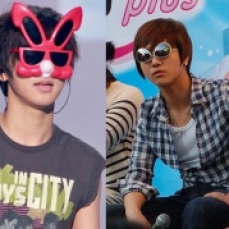

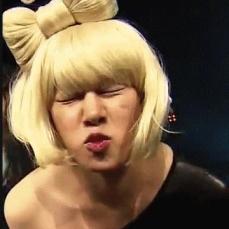
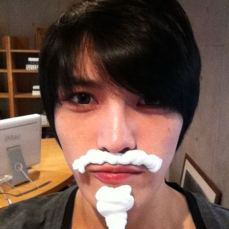










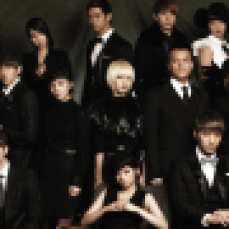














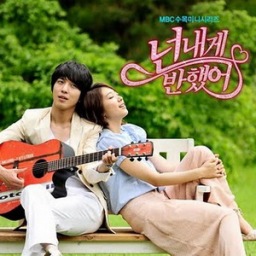











isnt it sasaeng?
Yes, thank you. We’ve corrected the mistake.
whats a bias wrecker?
I assume you mean a bias ‘list’ wrecker, which is the same thing as a “Bias List Ruiner”.
Bias whecker is when you already have a bias but bias whecker is when you love a guy or girl in a group more then your other bias if that makes sense 😊
It’s when you have a bias, but when there’s someone else who keeps threatening that place as your bias. Take BTS for example:
My bias is Jungkook, but my bias wrecker is Jimin (AND V!) They both do things that make me want them to be my bias.
I think it’s a second of your bias
Bias wrecker is an idol who you are starting to like more than your previous bias. For example your bias is jungkook but you find baekhyun more sexy and attractive too. So baekhyun is your bias wrecker (also bias ruiner).
It means when you have a bias but you love/like someone else in the group almost the same amount
For example: Someone is your bias. Then you see someone that you also kinda like. So like, the bias wrecker tests your love for your bias and wrecks your bias list. i was too late replying to this huhuhu;;
What does TH mean and RP stand for? K-POP
What is a unit group? I can’t seem to find any explination.
A group that is made up of members from a band, but not all of them – only a sub-group. For example: Orange Caramel is a (sub) unit of After School, etc.
Pingback: Community | 2ITG 2017
Pingback: Conclusion | 2ITG 2017
What’ s a monster rookie?
Just a rookie with massive talent and strong initial success.
Thank you so much I know others here but, I wanna know others so I LITERALLY know what the others say. What’s the different about Unnie and noona BTW??
A female would refer to an older female as an unnie, but a male would refer to an older female as a noona. 🙂
This might seem obvious but I wasn’t sure what was meant exactly by debut of an idol or idol group, in the context that there’s a larger picture. For instance I had no idea they are chosen by a company and trained ahead of time and then make a debut after years of training with a certain company. I mean, teenagers and young people aren’t groomed like that in the U.S.
Also, now that BTS is so huge, might want to add their fans, Army/Armies, to the list, unless you’ve already done so. I didn’t check.
This blog has been on hiatus since 2015. Sorry, we’re no longer updating. But totally fans of BTS ourselves 😀